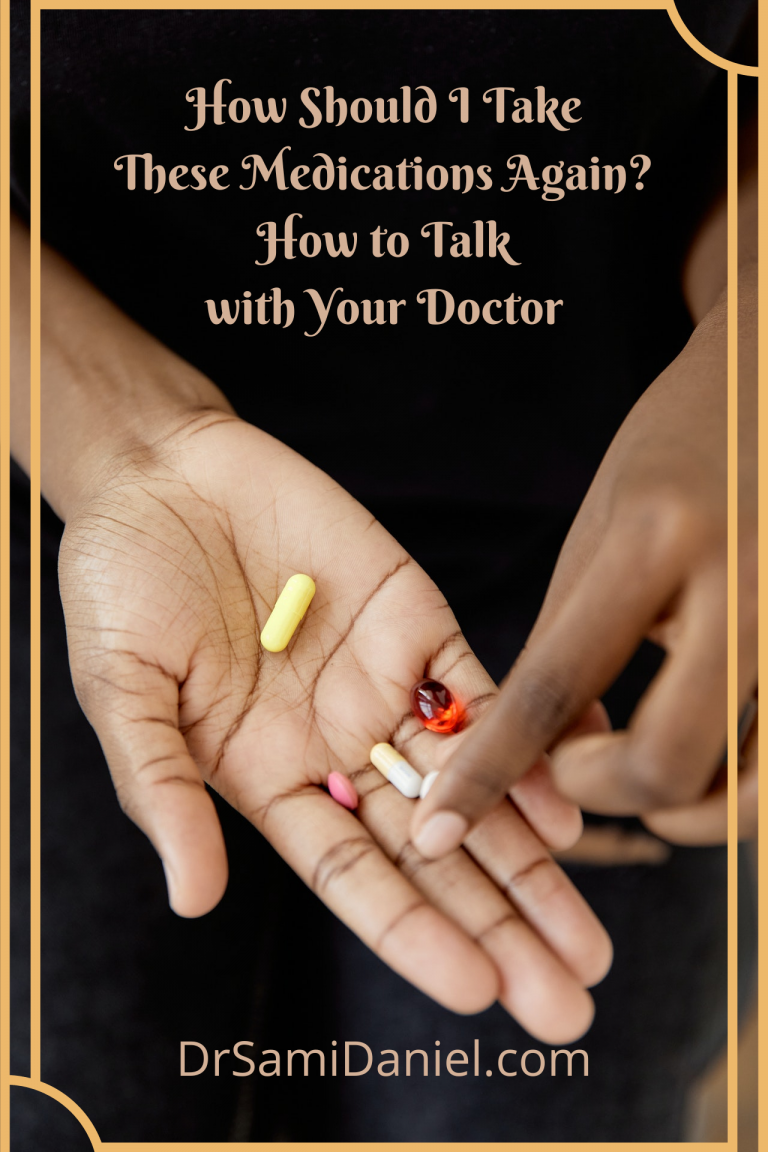5 Tips on How to Get the Most Out of Your Doctor’s Visit
You sacrificed a lot to be here. Took time off work, which means you’re not making any money.
Dropped the kids off, or maybe you needed to bring them along because no one was available to babysit.
You haggled with your insurance company. You may not have had insurance for a long time and now you are finally able to see the Doctor.
The list of sacrifice can go on. You NEED to make the MOST of this visit because every single minute matters to you. And because every single dollar counts.
These are some insider tips to help you make the most of your time at the Doctor’s office.
Table of Contents
ToggleTip #1 Have a Goal
The clock does not stop for you or for your Doctor. The Doctor can be pressed for time too. Therefore you both need to agree on a goal. Having a specific goal gives the visit a direction. With direction comes purpose.
To get the most out of your visit, you have to have a purpose. This usually revolves around some symptoms. This requires a little preparation.
For some people, it can be easy. Examples include: Fatigue or feeling tired, sleeping difficulty, headache, dizziness, change in vision, shortness of breath, runny nose, nasal congestion, wheezing, nausea, vomiting, diarrhea, chest pain, stomach pain, pelvic pain, arm or leg pain, etc.
For other people, symptoms can be hard to describe. And you just don’t feel right. You know you feel “off”, but you can’t seem to put your finger on why.
Either way, it’s ok. Even a vague symptom helps you prepare yourself and what you would like to talk about with your Doctor.
Tip #2 Anticipate the Doctor’s Questions
The Doctor will have questions about what you are experiencing. These questions usually follow a logical progression.
If there is a new problem, the Doctor will ask:
1) When did the symptom start? Was it sudden? Or did it happen gradually? What was happening when it started? Were you eating? Were you sleeping? Did you fall and hurt yourself? Does anyone you know also share your symptom?
2) Can you point to it or circle the general area with your finger? Or is it vague? Does it go anywhere else in the body?
3) When did the symptom begin? Hours? Days? Weeks? Months? Or years? Is it getting better, worse, or stays the same over time? Is the symptom constant? Or does it come and go?
4) What does the symptom feel or look like? Is there itching? Is it sore? Throbbing? Aching? Sharpness? Tightness? Or is there a different color? Texture? Or even an odd odor?
5) Does anything make the symptom worse? Physical activity or movement? Environmental factors like smoke or allergens? Maybe specific foods can aggravate the problem.
6) Does anything make the symptom better? Any specific body positions? Have you tried over the counter medications which seemed to help?
7) What have you tried to treat the symptom so far? Over the counter medications? Herbal remedies? Stretches or exercises?
If you are having a routine check up on a chronic problem like Diabetes or High Blood Pressure, the Doctor will ask things like:
1) Do you check your blood sugar or your blood pressure at home? What was the last reading?
2) What is the range of blood sugar or blood pressure at home? What was the biggest number? What was the smallest number?
3) Did you take that reading in the morning? Mid-day? Or evening?
4) Do you take your medications on time? Are you experiencing any side effects?
5) Are you experiencing any headache? Dizziness? Vision changes? Chest pain? Palpitations? Shortness of breath? Nausea? Vomiting? Stomach pain or bloating? Fevers? Chills? Increased appetite? Increased thirst? Increased trips to the bathroom? Swelling of your legs?
These questions all help your Doctor determine whether or not your condition is under control.
Tip #3 Umm… What did the Doctor tell me again?
We’ve all had that experience. The Doctor just told us what’s going on and he/she explained all the medications, what they do, the dosage, and how often to take them. We inevitably walk away not remembering everything in pristine detail.
I guarantee the doctor has had to study these medications hundreds of time before beings able to rattle them off the tip of their tongue! So do not feel bashful about writing down what they said.
This medication is for ___________
I need to take this dosage ___________
How many times should I take this medication? ___________
What time of day should I take this medication? ___________
How long should I take this medication for? Days? Weeks? Months? Years? ___________
Should I be checking my kidney function with this medication? My liver function? White blood cell count? My sugar levels? Cholesterol levels? My blood pressure? ____________
Tip #4 Medications need to be consistently adjusted
Being on exactly the same medication for years is not necessarily a good thing. You have a body that is dynamic. It makes more adjustments per day than we can ever hope to realize! So it would make sense that an adjustment to medications may be necessary.
Going up on the dose of a medication might be necessary. Or going down on the dose might be necessary.
The Doctor will make that decision based on what that medication is supposed to help.
If the medication is for blood pressure, did your pressure go down with the medication? Did it go up? Or stay the same?
If the medication is for cholesterol, did it help lower the cholesterol on your blood work? It could also go up or stay the same.
What about medication for sugar levels in people with diabetes? The same questions are asked, Up? Down? Same?
Based on these results, the Doctor will make adjust your medications up, or down, or keep them the same.
Ask why he/she is making those adjustments or why they might have chosen to keep your medications exactly as they are. This will help you understand why you are taking these medications and what your body needs to be well.
Tip #5 Be Honest. There’s no judgement here
Most of us are honest about what we need. We need this pain to go away, or we need to feel less tired, or less stressed, or anything else you can think of.
But are we honest about smoking less or quitting? Having a better diet? Exercising more? Taking your medications like you’re supposed to?
The Doctor does not ask these questions to judge and lecture you. The Doctor cares only for your health.
It’s true that the Doctor might be disappointed to hear that things didn’t go according to plan. But life happens and we have to roll with the punches!
Everything you do matters. Why you do them matters too. If you stopped taking a medication because it gave you explosive diarrhea, the Doctor would be foolish not to do something about that. Maybe he/she would lower the dose or change the medication completely.
If you tried your best to quit smoking but life is stressful, your Doctor may be able to help you either with different medication or providing you someone to talk with.
Life is as dynamic as your body. Let your Doctor know what’s happening. He/she may not have enough time to cover everything in 1 appointment. But at least you made them aware of the topic you want to discuss at the next appointment.
This way, both you and your Doctor are ready to help you best.
Summary
2) Arm yourself with answers to the Doctor’s questions.
3) Have a way to record what the Doctor said so you can take time to review the things you might have forgotten after the appointment.
4) You are a dynamic being. Medications need to reflect that.
5) There is NO judgement. The Doctor simply needs to know how to best care for you.







